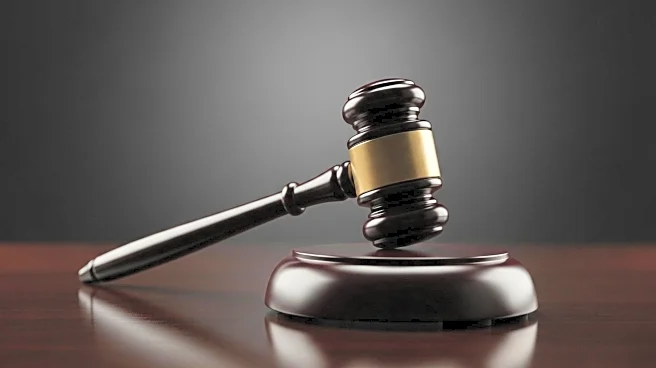What's Happening?
US District Judge Deborah Boardman of Maryland has sentenced Nicholas John Roske, who attempted to assassinate Supreme Court Justice Brett Kavanaugh, to just over eight years in prison. This decision has sparked backlash, with critics arguing that the sentence is too lenient given the severity of the crime. The sentencing guidelines, enhanced by a terrorism charge, suggested a range of 30 years to life. Attorney General Pam Bondi has announced that the Justice Department will appeal the sentence, deeming it 'woefully insufficient.' During the sentencing, Judge Boardman considered Roske's decision to call the police and abandon his plan, which she credited as a mitigating factor. The case has raised concerns about the increasing threats to federal judges and the implications of a light sentence in deterring future crimes.
Why It's Important?
The sentencing of Roske is significant as it highlights the ongoing debate over judicial discretion and the appropriate punishment for crimes involving threats to public officials. The decision has implications for the safety of federal judges, especially amid rising threats. Critics argue that a lenient sentence may not serve as a strong deterrent, potentially emboldening others to commit similar acts. The case also underscores the challenges in balancing justice and rehabilitation, particularly when dealing with individuals who abandon criminal plans. The appeal by the Justice Department could set a precedent for how such cases are handled in the future, impacting public policy and the judiciary's approach to sentencing.
What's Next?
The Justice Department's appeal will be reviewed by the US Court of Appeals for the Fourth Circuit, which could potentially overturn Judge Boardman's sentence if it finds errors in her judgment. The appeal process will scrutinize whether the judge properly balanced the sentencing factors and whether the sentence adequately deters similar crimes. The outcome of the appeal could influence future sentencing in cases involving threats to public officials and may lead to changes in how terrorism enhancements are applied. Additionally, the case may prompt discussions on judicial accountability and the protection of federal judges.
Beyond the Headlines
The case raises ethical and legal questions about the treatment of transgender individuals in the criminal justice system, as Roske is a transgender woman. Judge Boardman's inquiries about treatment options in a male federal penitentiary highlight the complexities of ensuring fair and humane treatment for transgender inmates. This aspect of the case may contribute to broader discussions on the rights and accommodations for transgender individuals within the legal system.









